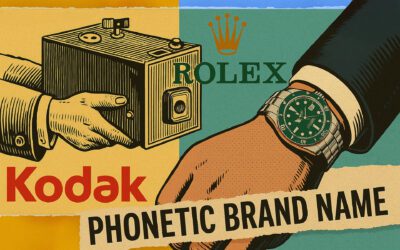The Essence of Marketing and Branding
The conversation around marketing and branding is as old as the disciplines themselves, sparking professional debates about their roles and impacts. But if we boil it down to the basics, we find a simple truth: marketing is the science behind influencing the buy decision, while branding is the art of connecting with people on a deeper level. Marketing focuses on creating awareness and driving sales, while branding focuses on building loyalty and emotional connections. Both are essential for successful businesses.
Understanding the Science of Marketing
Marketing is not just about selling; it’s about understanding. It dives deep into understanding and influencing consumer behavior, market trends, and the effectiveness of various channels to reach and influence potential buyers. With tools like conversion rates, click-through rates, and sales figures at their disposal, marketers can make decisions that are not just educated guesses but informed strategies backed by data.
Data-Driven Decisions
The modern marketing landscape is shaped by the scientific method. From A/B testing to predictive analytics, every tactic employed is grounded in evidence and analysis. This approach allows marketers to test hypotheses, measure outcomes, and refine strategies to ensure maximum efficiency and effectiveness. This data-driven approach has enabled marketers to gain valuable insights into their customers’ behavior and preferences and create targeted campaigns that are more likely to result in conversions. It has also allowed for more precise targeting of potential customers and increased ROI.
The Art of Branding
On the other hand, branding is where creativity flows. It’s more than just logos and taglines; it’s about crafting a company’s soul. Branding is about creating an identity that speaks to the heart, evoking emotions, and building connections beyond the superficial.
Crafting a Memorable Identity
The true art of branding lies in its ability to tell a story and create an experience that resonates with the audience on a personal level. Branding transforms a business or product into something truly memorable, creating loyal customers, sometimes even a community. A well-crafted brand has the power to evoke emotions and create an emotional connection with the audience. It also conveys a sense of trust and reliability, which can help to build customer loyalty. A strong brand can help to create an identity for a business, making it stand out from its competitors.
Some examples of businesses that have successfully built a strong brand identity include Apple, Nike, and Coca-Cola. Apple is known for its sleek and innovative products, which have created a loyal following of tech enthusiasts. Nike has built a brand around athleticism, inspiring people to “Just Do It” and pursue their passions. Coca-Cola has created a brand synonymous with happiness and togetherness, and its iconic red and white logo is instantly recognizable worldwide.
These companies have invested time and resources into crafting their brand identities, which has made them instantly recognizable and built a loyal customer base.
The Intersection of Marketing and Branding
While marketing focuses on driving actions like purchases, branding takes a longer view, focusing on building lasting relationships. It’s the difference between a one-time buyer and a lifelong advocate for a brand. Branding is based on creating trust and familiarity. It involves creating a consistent message and image that resonates with customers and ensuring they feel valued and appreciated.
Influencing Decisions vs. Building Trust
Marketing is designed to influence the buying decision at the moment, using strategies that prompt immediate action. Branding, however, is the foundation upon which these strategies are built, establishing trust and loyalty that endure well beyond the point of sale. Branding allows companies to differentiate themselves from their competitors and create a unique identity that resonates with their target audience. It also provides a platform to launch marketing campaigns that align with the brand’s core message.
Different, Yet Complementary
Although marketing and branding employ different skills and strategies, they are not at odds. Instead, they complement each other, with marketing analytics providing the means to effectively reach consumers and branding’s creativity, ensuring those connections are meaningful and lasting. Companies should invest in both marketing and branding for successful marketing campaigns. Both elements are essential for creating a successful brand, and a combination of both elements can help build a strong identity and trust with consumers.
The relationship between marketing and branding is symbiotic, each playing a crucial role in a product or business’s journey. While marketing harnesses the power of data to engage consumers, branding weaves the emotional and visual threads that bind customers to a brand. Together, they craft a holistic approach to success, proving that the possibilities are endless when science and art collaborate.




